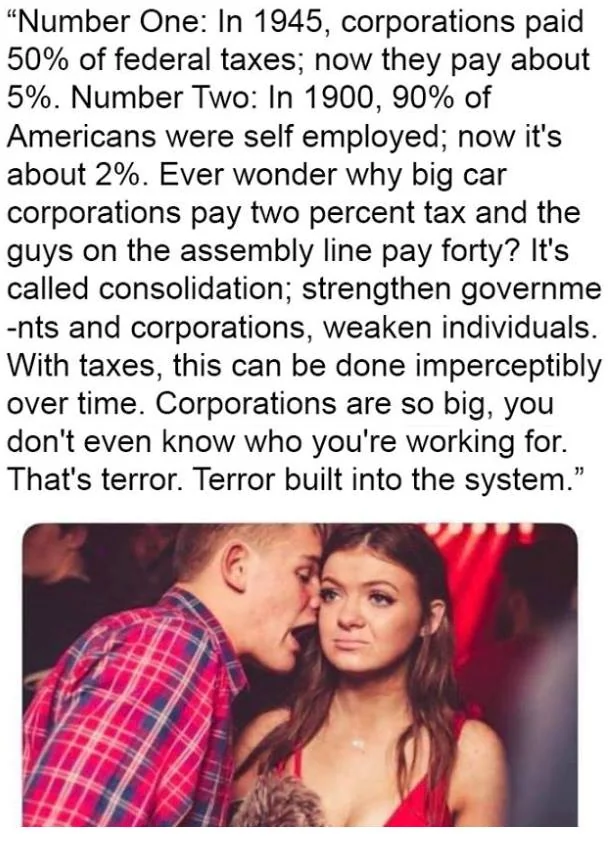this post was submitted on 25 Mar 2024
1172 points (97.5% liked)
memes
10309 readers
2228 users here now
Community rules
1. Be civil
No trolling, bigotry or other insulting / annoying behaviour
2. No politics
This is non-politics community. For political memes please go to !politicalmemes@lemmy.world
3. No recent reposts
Check for reposts when posting a meme, you can only repost after 1 month
4. No bots
No bots without the express approval of the mods or the admins
5. No Spam/Ads
No advertisements or spam. This is an instance rule and the only way to live.
Sister communities
- !tenforward@lemmy.world : Star Trek memes, chat and shitposts
- !lemmyshitpost@lemmy.world : Lemmy Shitposts, anything and everything goes.
- !linuxmemes@lemmy.world : Linux themed memes
- !comicstrips@lemmy.world : for those who love comic stories.
founded 1 year ago
MODERATORS
you are viewing a single comment's thread
view the rest of the comments
view the rest of the comments

Pretty sure you're thinking I'm supporting the "companies". I'm not. Their sole purpose is to make money, be it for the ownership, board, or investors. Regardless of how you feel about that, it's "real world" economics. , Raising taxes on them comes with consequences, we need to be honest with the ripple effect it causes. The board, shareholders, ownership, etc isn't going to just "take it" and lower their own compensation. They will lower their costs to compensate, in the form of reducing hours, lowering quality of their product, raising prices on their product, lowering other compensation provided to employees, drastic cuts to their workforce, contracting workers, even famously "giving you less chips in a bag" for the same price. Companies will only willfully raise wages when the alternative is to be pushed out of lucrative markets.
Nothing about economics is "basic".
Profit is literally the top objective of a For Profit company and they will charge the maximum they can get away with independently of taxes because that maximizes profit.
If as per your theory a company charges X because it pays lower corporate taxes, and when the taxes it pays go up it starts charging X + Y, that means it could've been charging X + Y all along (as in that theory of yours people clearly are willing to pay it) but didn't, so logically it was not maximizing profits. which goes against the very objective of a company.
In financial and accounting terms corporate taxes are not costs (they apply to profits only and can never make a profitable company become unprofitable) and hence don't cause the same effect on prices as actual cost increases which can push prices up because they force all market participants to do so as otherwise they risk losing money.
Ditto on your whole lowering of costs "theory" - if a company can already lower costs and is not doing it, then it is literally refraining from maximizing profits, so going against its reason of being.
You assume a causal relation that isn't there because the driving motivation for any company is profit maximization and all those things you say they would start doing if taxes went up they have an obligation of doing it right now as that maximizes profits and if they're not doing it that's because they can't, and there is no logical explanation for not being able to do it now because their taxes are lower.
You're correct, there is nothing stopping them from lowering costs right now, aside from market competition. If prices on the exact same item are different between Target and Walmart, for example, the market trend is generally toward the retailer with the lowest price (excluding external factors such as time/distance, familiarity, etc). However, as taxes (or any realized cost of doing business, for that matter) goes up, the pressure from investors/shareholders goes up, necessitating these moves sooner than later.
Jacking up taxes or the cost of labor, materials, energy or compliance will be offset by things I've already stated ad nauseum. Business will do what it does and continue to grow wealth at the top and keep the rest of us as complacent as possible.